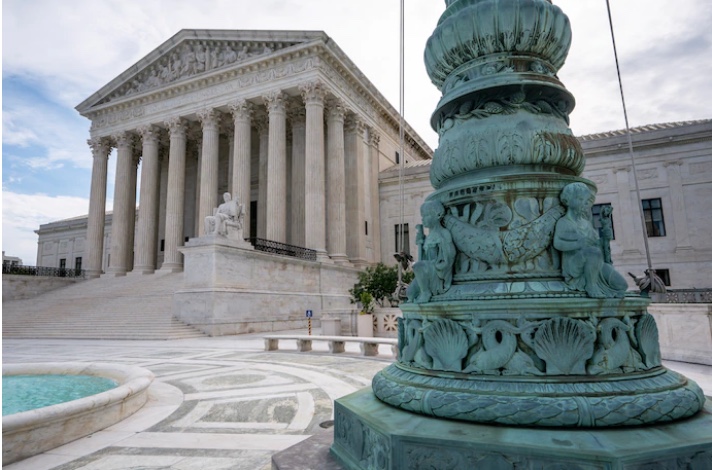The supreme court struck down a formula at the heart of Voting Rights Act – now voters who are discriminated against bear the burden of proving they are disenfranchised
even years ago today, the supreme court issued one of the most consequential rulings in a generation in a case called Shelby county v Holder. In a 5-4 vote, the court struck down a formula at the heart of the Voting Rights Act, the landmark 1965 law that required certain states and localities with a history of discrimination against minority voters to get changes cleared by the federal government before they went into effect.
Immediately after the decision, Republican lawmakers in Texas and North Carolina – two states previously covered by the law – moved to enact new voter ID laws and other restrictions. A federal court would later strike down the North Carolina law, writing it was designed to target African Americans “with almost surgical precision”.
“The scope of what, frankly, the right could do, in a pre-Shelby world was very limited. Now it’s not so limited,” said Bryan Sells, a voting rights attorney in Georgia. “If I’m a Republican political consultant or strategist, the options that are available to me are now wider than they used to be… It made it more advantageous to tinker.”
Immediately after the decision, Republican lawmakers in Texas and North Carolina – two states previously covered by the law – moved to enact new voter ID laws and other restrictions. A federal court would later strike down the North Carolina law, writing it was designed to target African Americans “with almost surgical precision”.
Immediately after the decision, Republican lawmakers in Texas and North Carolina – two states previously covered by the law – moved to enact new voter ID laws and other restrictions. A federal court would later strike down the North Carolina law, writing it was designed to target African Americans “with almost surgical precision”.
“The scope of what, frankly, the right could do, in a pre-Shelby world was very limited. Now it’s not so limited,” said Bryan Sells, a voting rights attorney in Georgia. “If I’m a Republican political consultant or strategist, the options that are available to me are now wider than they used to be… It made it more advantageous to tinker.”




